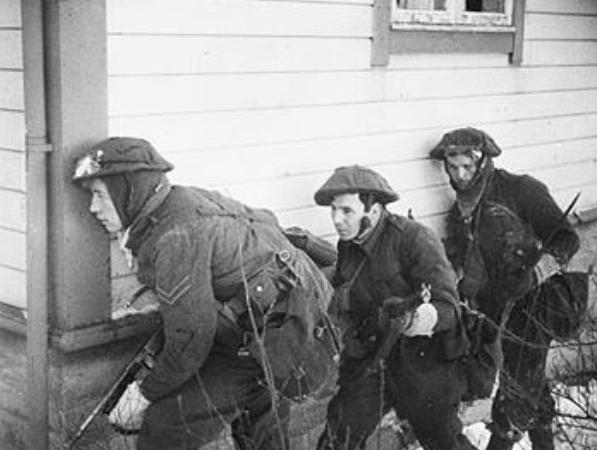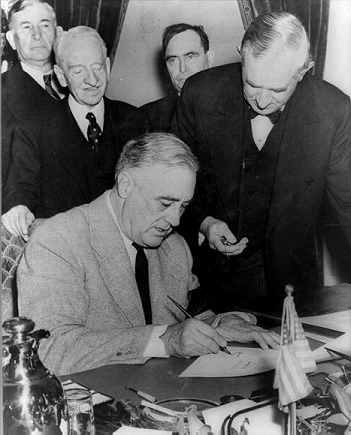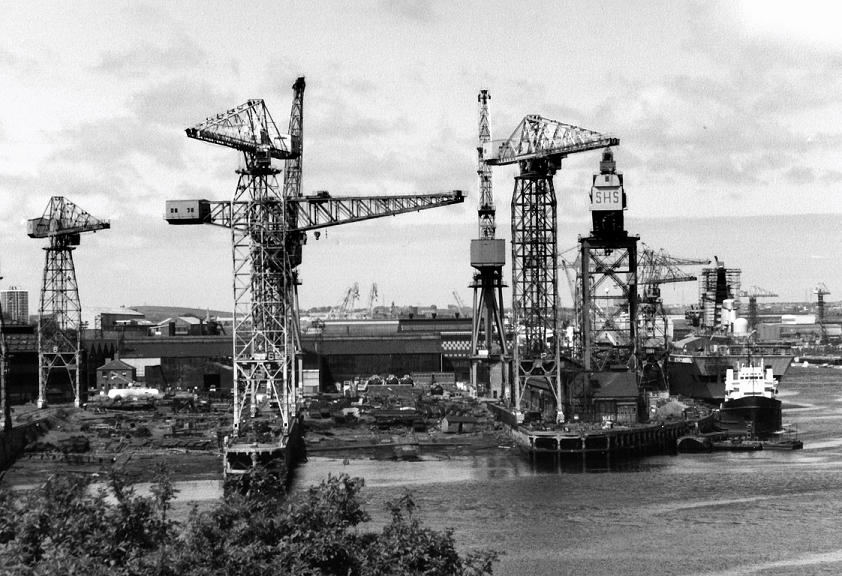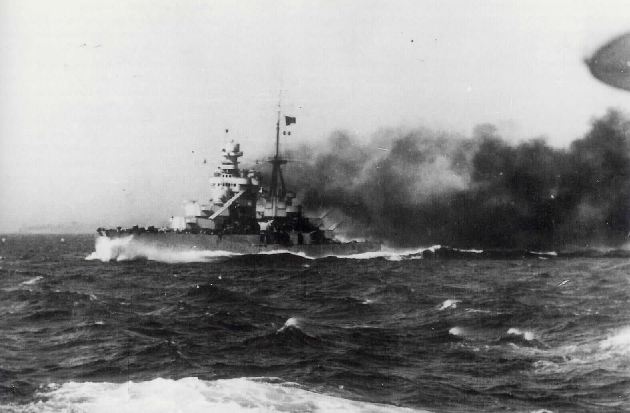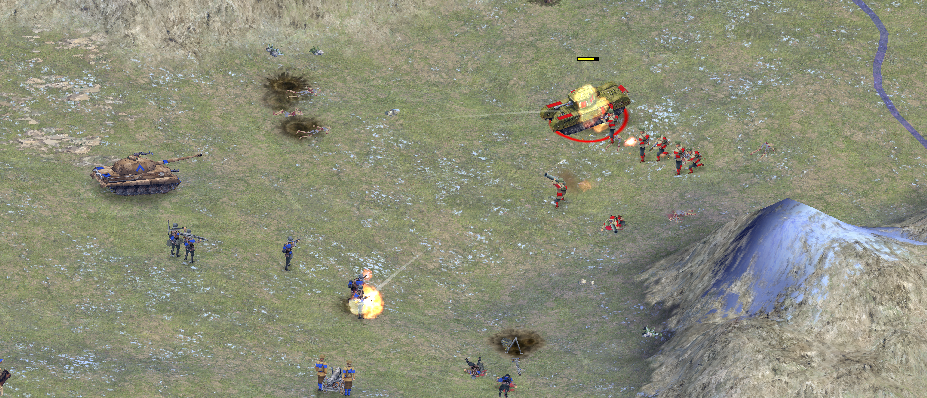The Sound of Drums - A British Hearts of Iron II AAR
Part Fifty-Two
16th - 23rd September 1940
The Peck-Nodikus Recruitment Act came to an end on the 21st September - eleven months after the Act was passed. Through their belief that the war would be a prolonged one and their subsequent urging of expanding the British ground forces, a total of 18 infantry divisions had been created. It had been nowhere near enough to take on the massive German forces, but the expansion was enough of a stop-gap to allow Britain to hold on.
The next expansion of standard infantry was to be postponed. The Royal Small Arms Factory at Enfield were busy developing new weaponry, while generals who had already fought in France in Africa - Alan Brooke and Prince Scamp most predominantly - returned to Britain to provide insight into modern-age fighting and suggestions into new tactics and doctrines.
Royal Marines training in Scotland
For the immediate future, the British army was to be boosted with specialised divisions, the first being a pair of marine divisions. The Cabinet had urged their creation for some time now, seeing the advantages of having troops specially trained in amphibious operations while conducting a campaign in the Mediterranean and, potentially, the Far East. It was hoped that their successful use would prove Britain would not need a large army to overwhelm the massive German forces, instead they would rely on small, exceptionally well trained troops, to focus on the Axis most vulnerable defences.
The need for utilising a small army did not come about just through military advice, but industrial necessity. At the start of September Britain simply could not hope to produce the vast amount of equipment or supplies needed to maintain a large army. An unexpected announcement from the United States changed that.
When Kan Sharuminar received a phone-call from the President late on the 22nd, he had expected that Roosevelt had simply wanted to follow up on some of the conversations they had taken during his brief visit the previous month. He couldnt have been more wrong, and spent most of the phone-call in total silence. On the other side of the Atlantic, Roosevelt was hurriedly informing the British Prime Minister that he was preparing to pass an act that would provide Britain and her allies the war-materials they required for the duration of the war.
Lend-Lease
At its most basic form, the lend-lease act was to provide the struggling allied nations with the equipment and supplies their armies needed, as well as the machinery to produce them. All materials could be returned after the war, or the United States would accept cash-compensation if the materials had been destroyed. Britain was by no means out-of-pocket, but the Act had the potential to bring its industrial strength to something nearing Germanys own, but at the very least it would have needed British equipment being produced in American factories.
It was an exceptionally bold move by Roosevelt, who clearly felt that the upcoming election was already won. Even Chancellor Yuri was impressed with the sudden American support of the Allied side, commenting that the Prime Minister must have made a good impression on Roosevelt in so short a visit. Or as he put it,
I didnt think you were with him that long




